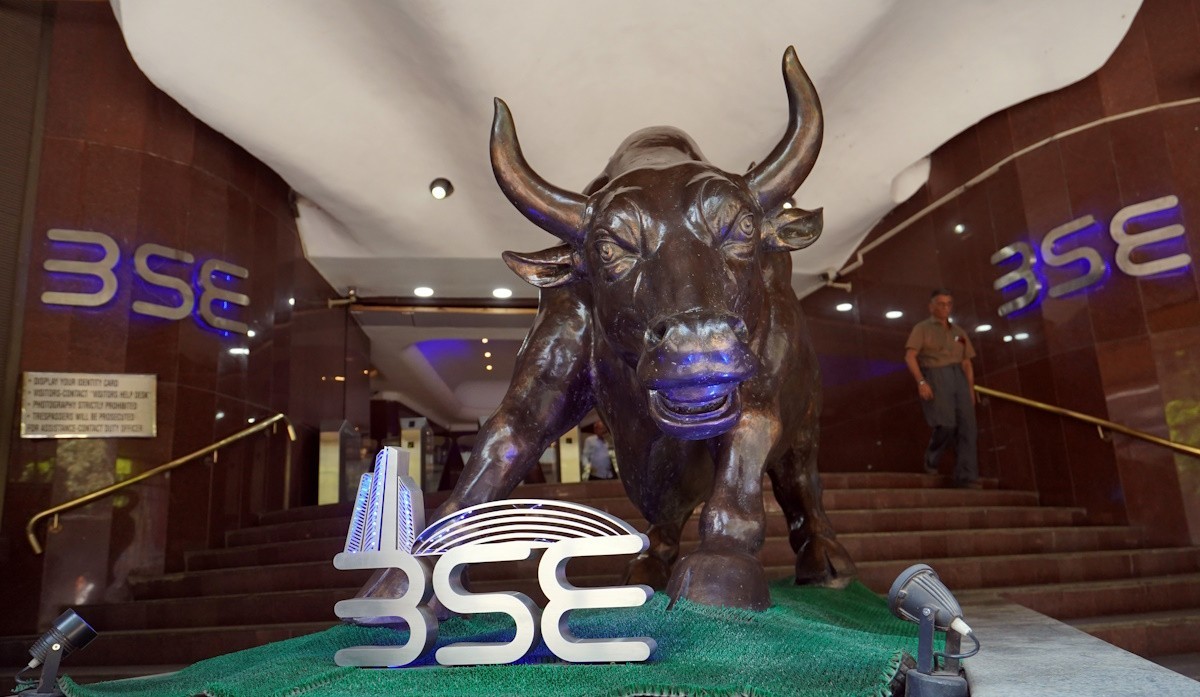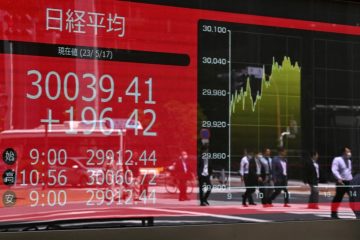India’s Booming Stock Market Is Leaving China in the Dust

India’s stock market is booming, helped by billions of dollars of inflows from international funds and a fast-growing army of small investors.
The MSCI India index has gained more than 7% this year, pulled higher by a rally in the shares of banks and automakers. The MSCI China index has lost almost 11% of its value, while a wider emerging-market index is down 2%.
Foreign investors put $8.3 billion into Indian equity funds between January and August, the highest amount on record for the period, according to data provider EPFR. They started selling their India holdings in September, but the country’s stock market still attracted more foreign investment in the third quarter than anywhere else in Asia, according to Goldman Sachs.
“Investors have cut their exposure to Chinese equities to build a large underweight position, and instead rotated into India. Foreign investors’ interest in India has been pretty dominant in driving the market,” said Prerna Garg, an equity strategist at HSBC.
India’s stock market has outperformed China’s for the past three years, partly the result of China’s strict effort to combat Covid-19, which caused economic pain that the country hasn’t fully recovered from. But until this year, foreign investment in Indian stocks has been patchy. Foreign institutional investors reduced their exposure to the market by around $17 billion last year, according to data compiled by Goldman Sachs. By the end of September this year, they were net buyers of more than $15 billion of shares.
Some investors think stock prices in India have risen too quickly this year. Stocks in the MSCI India index were trading at a forward price/earnings ratio of around 20 at the end of August, compared with a ratio below 10 for the stocks in the MSCI China index and around 12 for the wider emerging-markets index. That suggests Indian stocks are expensive.
“You have to take a long-term view to stomach these valuations,” said Kristy Fong, a senior investment director at Abrdn. She said a temporary fall in Indian companies’ stock prices would be a good thing, given the recent rally.
But investors and analysts think India’s booming economy will continue to drive stocks higher, albeit with the occasional blip.
The country’s economy grew at an annualized 7.2% in its most recent fiscal year, which ended on March 31, making it one of the world’s fastest-growing major economies. It is likely to grow 6.3% in the current fiscal year, the World Bank recently projected. China’s economic growth will slow to 4.4% in 2024, the World Bank said.
The focus on the economy means investors have favored companies with a clear domestic angle, particularly those likely to benefit from rising consumption. The shares of Indian automaker Tata Motors are up 60% this year, while those of motorcycle company Bajaj Auto have jumped 39%.
China’s breakneck growth over the past two decades should give investors a sense of the potential for India, said Shekhar Sambhshivan, an equity portfolio manager at Invesco. India’s gross domestic product per capita is around $2,600, around the same level China had in 2007, according to estimates from the International Monetary Fund. China’s GDP per capita is now around $13,700.
India’s stock market is also being helped by growing interest from small investors in the country, who have flocked to the stock market as a result of the bull run since early 2020. Small investors in China have become more nervous this year, and many are turning their backs on the stock market.
Indian shares make up around 14% of the MSCI Emerging Markets index, but foreign investors have persistently held less than that level for the past two years, according to data compiled by Pictet Asset Management.
India’s rupee has proved more stable against the U.S. dollar this year than many other Asian currencies, which have been hard hit by the rise in Treasury yields and expectations that the Federal Reserve will continue to increase interest rates. This is partly because the rupee performed so poorly last year, losing more than 10% of its value against the dollar, but the country’s central bank has also stepped in to support the currency, according to Nomura.










